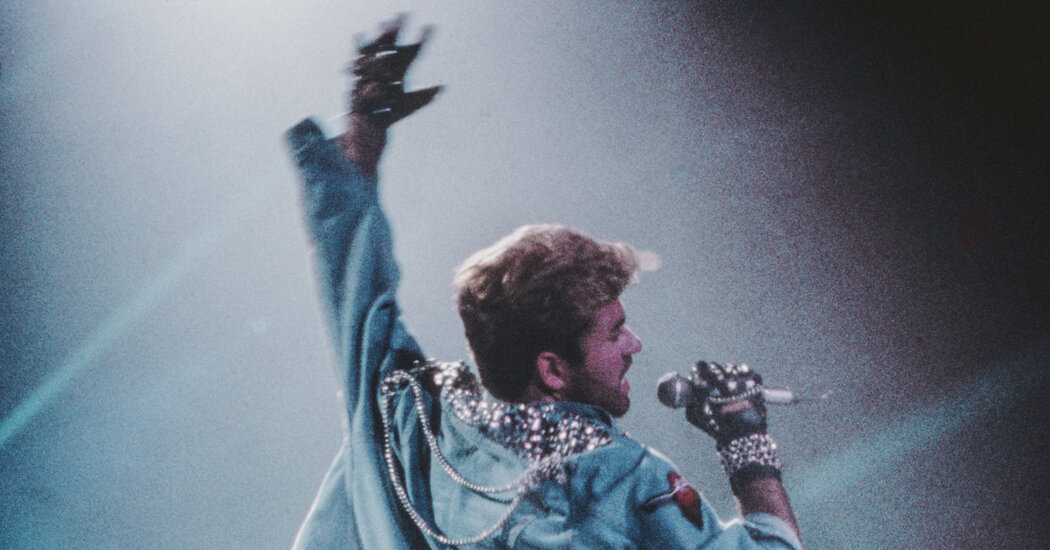
His disenchantment with stardom collapsed into depression over the following years. In June 1994, a little more than a year after Feleppa died, Michael lost the Sony case. In 1997, his beloved mother, Lesley, died of cancer. And in 1998, he was arrested in a Beverly Hills park for committing a “lewd act” with an undercover policeman, which is when he came out as gay and declared, “I don’t feel any shame whatsoever.”
In the midst of these troubles, he released a 1996 album, “Older,” which included the Top 10 hits “Jesus to a Child,” written in tribute to Feleppa, and “Fastlove.” (Michael called “Older” “my greatest moment,” and an expanded edition will be reissued on July 8.) But he made only one more album of original songs in the following 20 years before his death.
“Freedom Uncut” vivifies Michael for younger generations that didn’t live through the Pop Star Wars of the ’80s. He loved and emulated Black music, which created controversy in the moment — George Benson’s eyes nearly rolled back into his head when he announced Michael’s 1989 American Music Award win in the favorite soul/R&B album category. But time often engenders empathy, and the singer is now viewed as an ally. “Michael’s journey as a working-class gay white man from London who loved Black music and Black culture gave him an intersectional legacy that few artists (save Prince) will ever achieve,” Jason Johnson wrote in The Root, a website that focuses on African American issues, two days after the singer died.
The fact that Michael was able to write, arrange and produce at such a high level places him in “the rarefied air of Sly Stone, Prince or Shuggie Otis,” Mark Ronson added in a phone interview. “It’s crazy, because he made incredible R&B music, but he didn’t go to America to record it” with Black musicians, he noted. “There wasn’t the insecurity of being a white soul boy from England.”
Ronson also hears melancholic or even mournful qualities in Michael’s music: “A lot of our favorite artists sound catchy and peppy, but when you peel back one or two layers, you see somebody who’s dealing with serious inner demons.”



